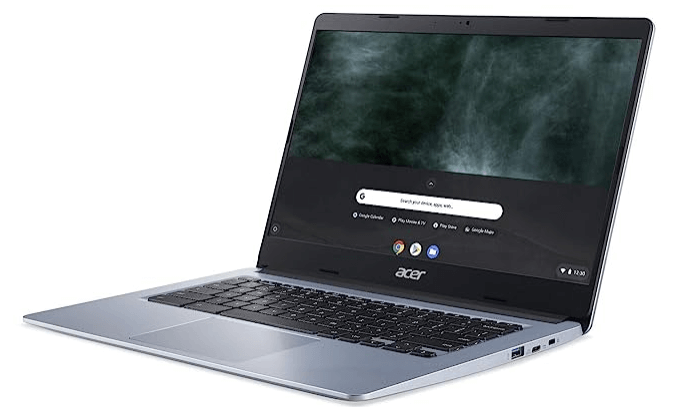Chromebooks are becoming increasingly popular for their simplicity, affordability, and ease of use. They are great for engineering college students, professionals, and anyone who needs a reliable computer that’s easy to use. We will discuss the top Chromebooks in this guide.

Google Pixelbook Go
The Google Pixelbook Go is a high-end Chromebook perfect for power users. It has a 13.3-inch touchscreen display and a backlit keyboard that’s comfortable to type on. It also has a powerful Intel Core processor and up to 16GB of RAM, making it one of the most powerful Chromebooks on the market. The battery life is impressive, with up to 12 hours of use on a single charge.
ASUS Chromebook Flip C434
The ASUS Flip C434 is a versatile 2-in-1 Chromebook for studying and games. It has a 14-inch touchscreen display that can be rotated 360 degrees for a tablet. It also has a sleek aluminium design and a backlit keyboard that’s comfortable to type on. It’s powered by an Intel Core processor and has up to 8GB of RAM, making it an excellent choice for multitasking.
Acer Chromebook Spin 311
The Acer Spin 311 is a budget-friendly Chromebook for students and casual users. It has an 11.6-inch touchscreen display and a 360-degree hinge, allowing it to be used as a tablet. It’s powered by a MediaTek processor and has up to 4GB of RAM, making it suitable for basic tasks like web browsing and word processing. It also has a long battery life, lasting up to 10 hours on a single charge.
How to choose the best Chromebook?
When choosing a Chromebook, there are several factors to consider based on your needs and preferences. Here are some key considerations to help you make an informed decision:
- Operating System: Chromebooks run on Chrome OS, a lightweight operating system developed by Google. It is designed for web-based tasks and relies heavily on cloud-based applications. Consider whether Chrome OS meets your requirements and if you are comfortable using a primarily web-centric operating system.
- Performance and Hardware: Look for a Chromebook with sufficient processing power and memory to handle your intended tasks. Consider the processor type (Intel, ARM-based), RAM (4GB or higher is recommended for smoother multitasking), and storage capacity (Chromebooks typically have limited built-in storage, relying on cloud storage).
- Display and Size: Chromebooks come in various screen sizes, typically 11 to 15 inches. Consider the screen size and resolution based on your preferences and the tasks you’ll be performing. A higher resolution display will offer better image quality. Consider factors like touch screen capability and 2-in-1 form factors (convertible to tablet mode).
- Battery Life: Chromebooks are known for their excellent battery life. Look for a model that offers long-lasting battery performance to suit your usage patterns, especially if you need a device for extended periods without access to a power source.
- Connectivity and Ports: Check the available connectivity options on the Chromebook. Most models offer Wi-Fi and Bluetooth, but if you require additional connectivity, ensure the device has the necessary ports (USB, HDMI, audio jack, etc.) for your peripherals or external displays.
- Build Quality and Durability: Consider the build quality and durability of the Chromebook, especially if you plan to carry it around frequently. Look for models with robust construction, reinforced hinges, and spill-resistant keyboards if these features are essential to you.
- Price: Chromebooks generally offer a more affordable alternative to traditional laptops. Determine your budget and compare the features, performance, and build quality offered by different models within your price range.
- Reviews and User Feedback: Read reviews from reputable sources and consider user feedback to get insights into specific Chromebook models’ performance, reliability, and user experience. This can help you gauge the overall quality and identify any potential issues or limitations.
- Brand and Support: Consider the reputation and support offered by the manufacturer. Opting for a well-known brand can assure product quality and customer service.
- Specific Requirements: Identify any specific requirements you have, such as stylus support, compatibility with specific apps or software, or the need for a backlit keyboard. Make sure the Chromebook you choose meets those requirements.
Conclusion
There are many Chromebooks to choose from, but these three are some of the best on the market. Whether you need a high-end Chromebook for power use, a versatile 2-in-1 for work and play, or a budget-friendly option for basic tasks, there is a Chromebook for you. Consider your needs and budget when choosing the best Chromebook for you.